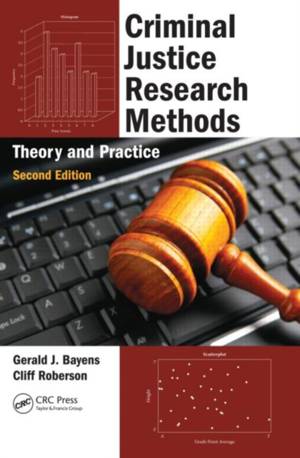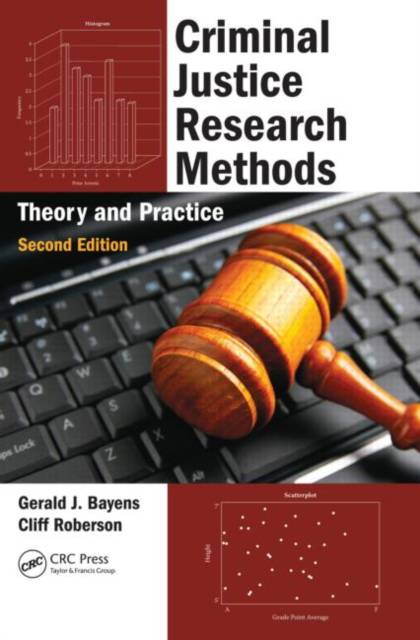
- Afhalen na 1 uur in een winkel met voorraad
- Gratis thuislevering in België vanaf € 30
- Ruim aanbod met 7 miljoen producten
- Afhalen na 1 uur in een winkel met voorraad
- Gratis thuislevering in België vanaf € 30
- Ruim aanbod met 7 miljoen producten
Criminal Justice Research Methods
Theory and Practice
Gerald J Bayens, Cliff RobersonOmschrijving
The study of research methodologies can be daunting to many students due to complex terminology, mathematical formulas, and lack of practical examples. Now in its second edition, Criminal Justice Research Methods: Theory and Practice offers a straightforward, easy-to-understand text that clarifies this complex subject matter, keeping perplexing research language and associated complexities to a minimum and ensuring that students get a practical grasp of this essential topic.
The authors discuss scientific inquiry, establishing a framework for thinking about and understanding the nature of research. They examine various types of research methods in the broad categories of quantitative, qualitative, and evaluation designs and provide coverage of analytical and experimental research designs. The book also examines survey methods, survey instruments, and questionnaires, including wording, organization, and pretesting. It describes the fundamental characteristics of the qualitative approach, setting the stage for an in-depth discussion of the participant observation and case study methods of research. Other topics include ethical standards of conduct, topic selection, literature review, and guidelines for writing a research report or grand proposal. The second edition features updated examples, reworked exercises, additional discussion points, and new research-in-action sections.
Defining a clear approach to the study of research, the book enables student experiencing their initial exposure to this subject to be fundamentally prepared to be proficient researchers in criminal justice and criminology.
Specificaties
Betrokkenen
- Auteur(s):
- Uitgeverij:
Inhoud
- Aantal bladzijden:
- 300
- Taal:
- Engels
Eigenschappen
- Productcode (EAN):
- 9781439836965
- Verschijningsdatum:
- 13/12/2010
- Uitvoering:
- Paperback
- Formaat:
- Trade paperback (VS)
- Afmetingen:
- 150 mm x 231 mm
- Gewicht:
- 417 g

Alleen bij Standaard Boekhandel
Beoordelingen
We publiceren alleen reviews die voldoen aan de voorwaarden voor reviews. Bekijk onze voorwaarden voor reviews.











